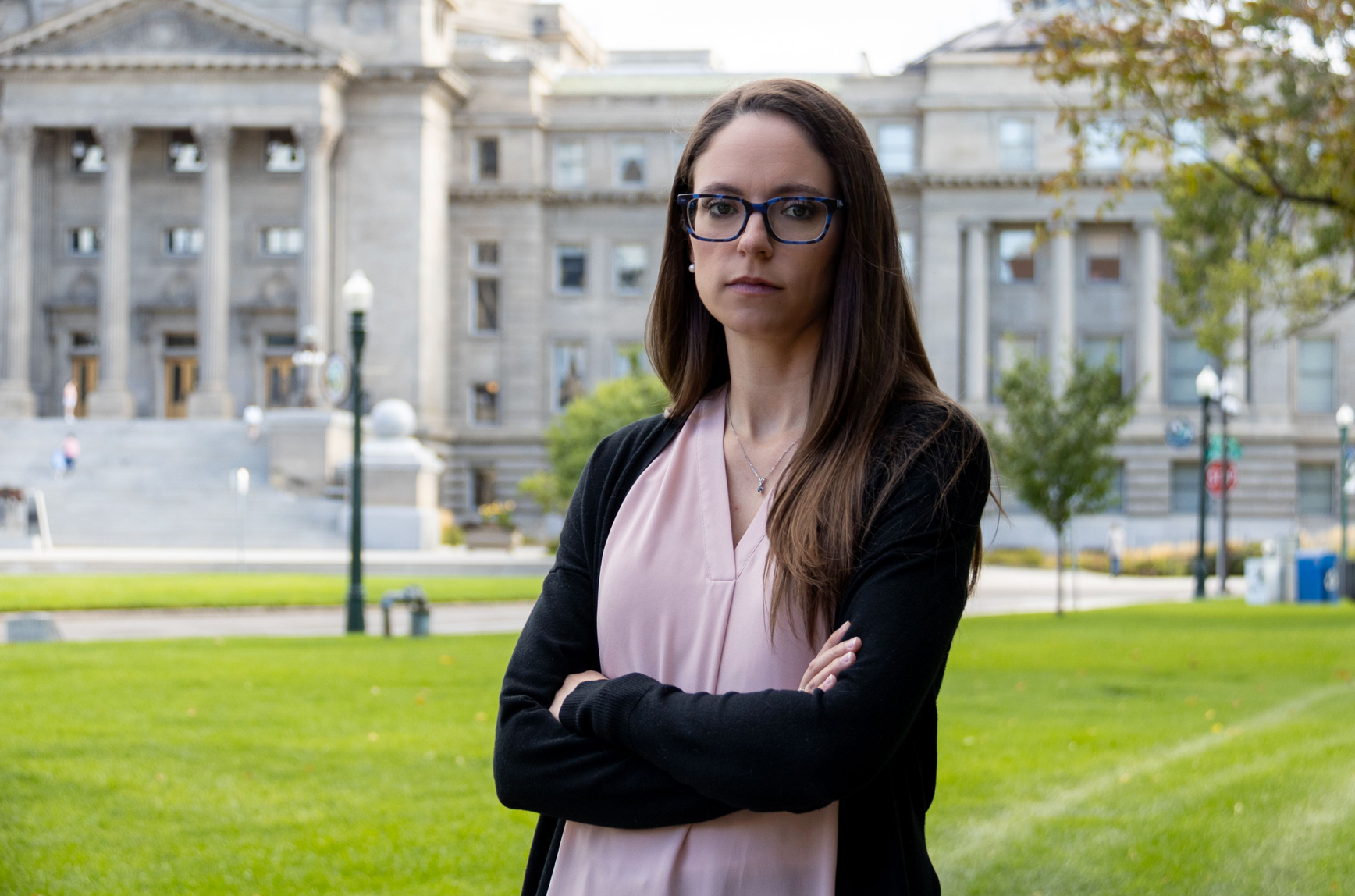Women who were denied emergency abortions file lawsuits in three states: ‘Torture no one should have to face’
Lawsuits want to clarify abortion ban exceptions for ‘medical emergencies’ in Idaho, Oklahoma and Tennessee
Eight women who were denied emergency abortion care while facing dangerous and life-threatening pregnancy complications have filed legal challenges in three states where abortion is effectively outlawed with only narrow medical exceptions, spreading widespread confusion among providers and hospitals fearing legal blowback or severe criminal penalties.
The challenges filed in Idaho, Oklahoma and Tennessee on 12 September have asked courts to clarify those medical exceptions after plaintiffs were turned away from urgently needed healthcare in their home states, forcing them to continue carrying their pregnancies knowing the fetus would not survive.
Patients, abortion rights advocates and providers have warned that anti-abortion laws threaten doctors with the revocation of their licenses or severe fines or jail time if they perform abortions that are believed to be in violation of anti-abortion laws.
The lawsuits follow a similar challenge in Texas, where a group of women relieved their traumatic experiences in emotional courtroom testimony after suing the state, marking the first-ever case brought by women who were denied abortions under state-level anti-abortion laws.
Last month, a judge in Texas ruled that doctors must use “good faith judgment” for abortion care for dangerous or complicated pregnancies. The state appealed the ruling, which is now on hold. Oral arguments in the ongoing case are scheduled for November.
The US Supreme Court’s reversal of Roe v Wade last year has “resulted in a healthcare crisis across the nation” leaving providers and hospitals to “weigh threats of criminal prosecution against the lives of their patients,” according to Nancy Northup, executive director of the Center for Reproductive Rights, which has filed the challenges on behalf of the plaintiffs.
“The impacts of those bans are extensive, including in states where abortion is criminalised, patients are forced to continue dangerous pregnancies that put their health, lives and future fertility at risk,” she told reporters during a press briefing on 12 September.
Physicians have also joined patients in the lawsuits in Tennessee and Idaho. A federal complaint lodged in Oklahoma targets the US Department of Health and Human Services and the Emergency Medical Treatment and Labor Act and its obligations for emergency abortion care.

The lawsuits also magnify a crisis in healthcare more broadly, as anti-abortion laws that threaten doctors push out not only abortion providers but fetal medicine specialists and other physicians serving pregnant patients.
Dr Emily Corrigan told reporters that out-of-state physician recruitment efforts have “dried up” while several fetal medicine specialists have left the state in the wake of Idaho’s anti-abortion laws, making the remaining specialists in the state irreplaceable.
Her emergency room work is ostensibly protected under the federal Emergency Medical Treatment and Labor Act, the subject of the Oklahoma lawsuit.
Jaci Statton, the plaintiff in that case, was diagnosed with a lethal molar pregnancy. Emergency room doctors confirmed her diagnosis and urgent need for a life-saving abortion, but an ultrasound technician allegedly refused to sign off on the exception.
She was sent to Oklahoma Children’s Hospital, where Ms Statton says hospital staff told her to wait in the parking lot until her condition deteriorated. Two days later, she fled to Kansas for abortion care, fearing that she could bleed to death during the three-hour drive.
While most of the 14 states that ban abortions in the aftermath of Dobbs v Jackson Women’s Health Organization have exceptions for medical emergencies, plaintiffs argue that the nonmedical and limited language in laws that determine the boundaries of that care are failing to reflect medical realities for pregnant patients.
Nicole Blackmon, the lead plaintiff in the Tennessee case, learned she was pregnant last summer. The welcome news followed the death of her son Daniel, who was killed in a drive-by shooting months earlier.
But a routine ultrasound at 15 weeks revealed that the fetus’ organs were developing outside its body in a rare and lethal malformation known as limb body wall complex.
“Because of Tennessees’ cruel law, we only had two options: wait in the state and risk my health and life for several weeks or months, or travel to Washington DC for abortion,” which could cost thousands of dollars even with financial help, Ms Blackmon said in the briefing.
Her health worsened, and her water broke in the seventh month of pregnancy. After 32 hours of labor, she delivered a stillborn baby.
“No one should have to endure the emotional and physical pain and risk to their life like I have suffered in Tennessee,” she said. “Something good must come out of my pain. That’s why I’m joining this case. … What we went through was torture that no one should ever have to face.”

Allie Phillips, who has also joined the Tennessee complaint, learned she was pregnant last November. The family was expecting a baby girl they planned to name Miley Tose.
Doctors discovered multiple fetal diagnoses at 19 weeks during a routine ultrasound, forcing Ms Phillips to seek emergency abortion care in a state where abortion is effectively outlawed at all stages of pregnancy. She raised money for travel to New York City, where she learned at the clinic that Miley’s heart already had stopped.
“I had to grieve the loss of my daughter in a city I’d never been to” away from family, she said. “Politicians are passing cruel laws against something they know absolutely nothing about.”
Jennifer Adkins, a plaintiff in the Idaho lawsuit, learned she was pregnant with her second child earlier this year. They were expecting a Halloween due date. A 12-week ultrasound revealed several fatal complications that put Ms Adkins at risk for a rare but dangerous condition known as mirror syndrome, in which the mother’s body begins to mimic the fetus’s life-threatening symptoms. She ultimately traveled to Oregon to seek abortion care.
“It isn’t safe to be pregnant in Idaho,” Ms Adkins said. “People in Idaho must be able to make informed decisions with their doctors without the intrusion in politics.”
Join our commenting forum
Join thought-provoking conversations, follow other Independent readers and see their replies
Comments



Bookmark popover
Removed from bookmarks